Abstract
In order to assess the role of maintenance melphalan and prednisone (MP) in responding multiple myeloma patients, 185 eligible patients who responded to initial MP with stabilization for at least 4 months were randomized to either stop treatment and resume therapy at relapse or to continue MP until relapse. Time to first relapse was significantly shorter in the no maintenance group (P = 0.0011), however 57% of the no maintenance patients had a second response when MP was restarted and others had minor improvement. The time to final progression on MP, which reflects the duration of disease control by MP, was therefore longer for the no maintenance group (median = 39 months) compared to the maintenance group (median = 31 months) although the observed difference was not statistically significant (P = 0.086). Median survival from start of MP in the maintenance group (46 months) was also not significantly different than the no maintenance group (51 months) (P = 0.587). Multifactor analysis of the randomized patients demonstrated shorter total remission duration and shorter survival in patients who had an initially rapid response to therapy or a lesser reduction in serum M-protein concentration.
Full text
PDF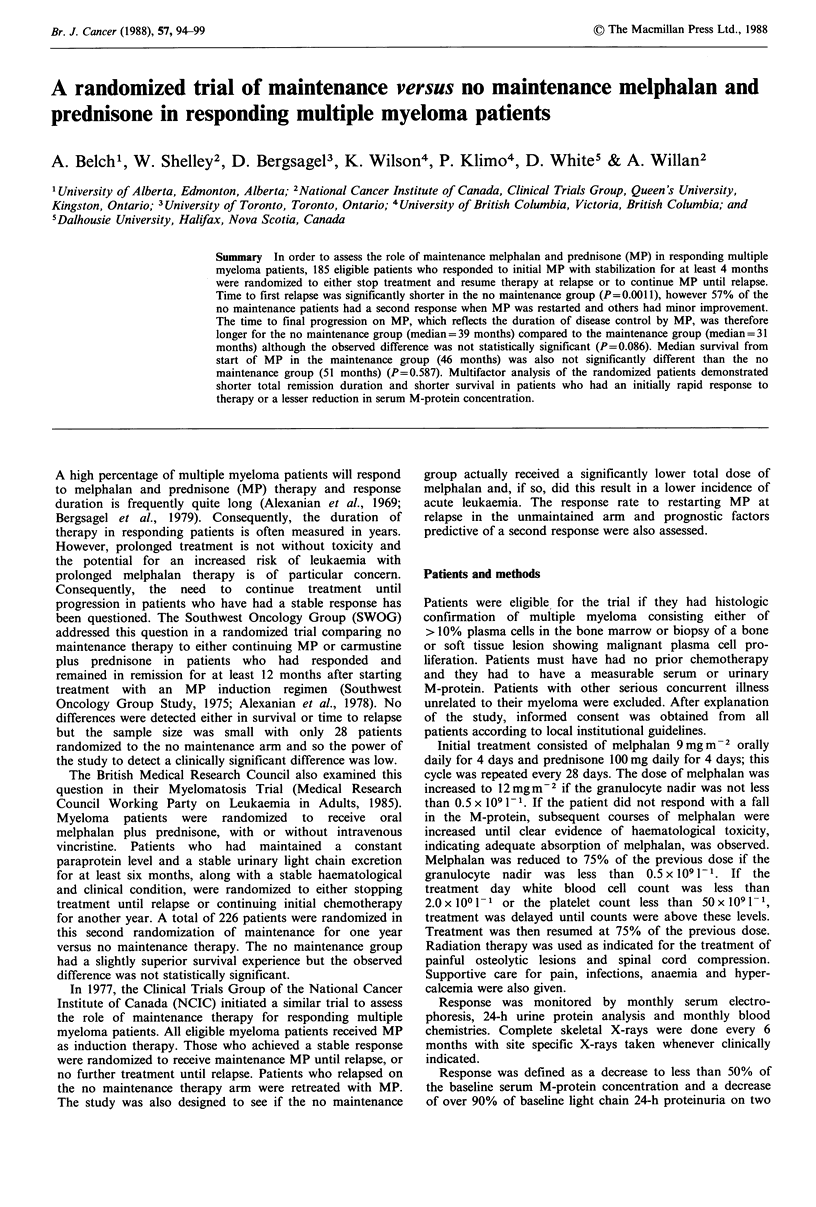
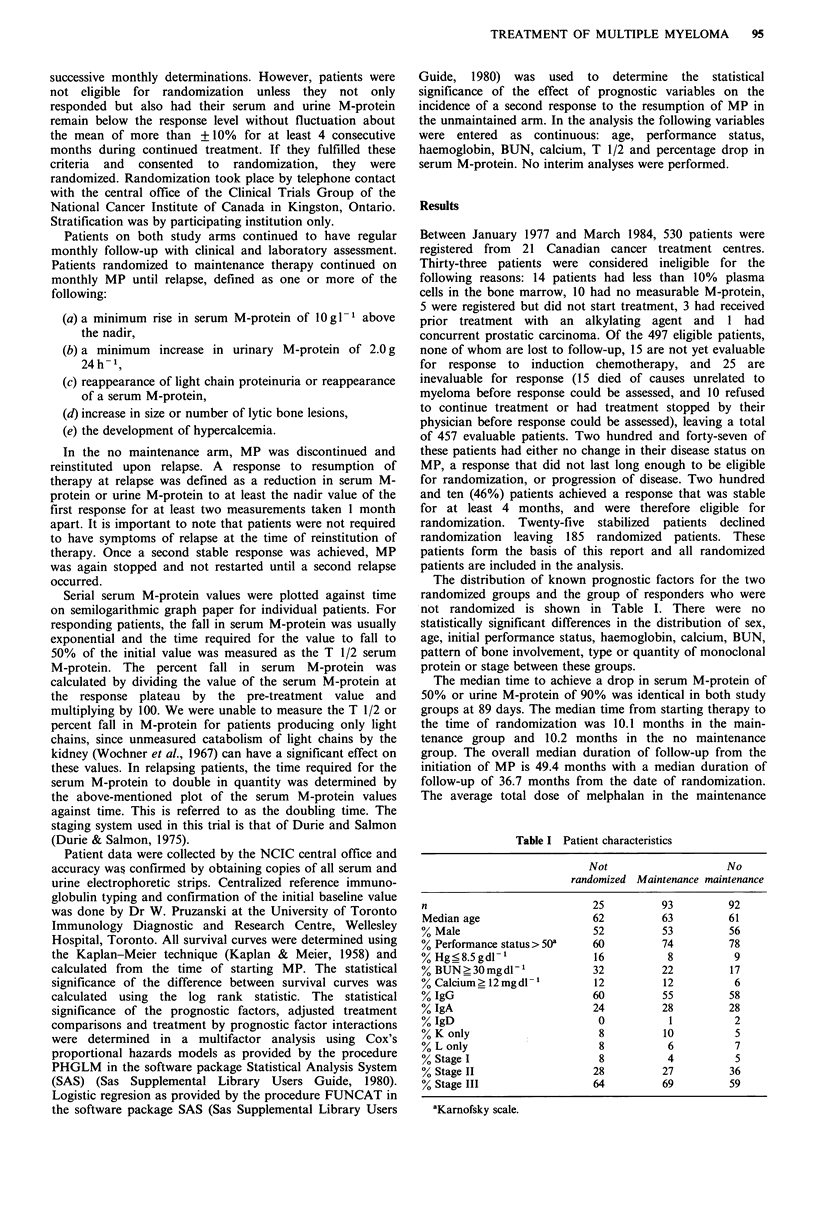
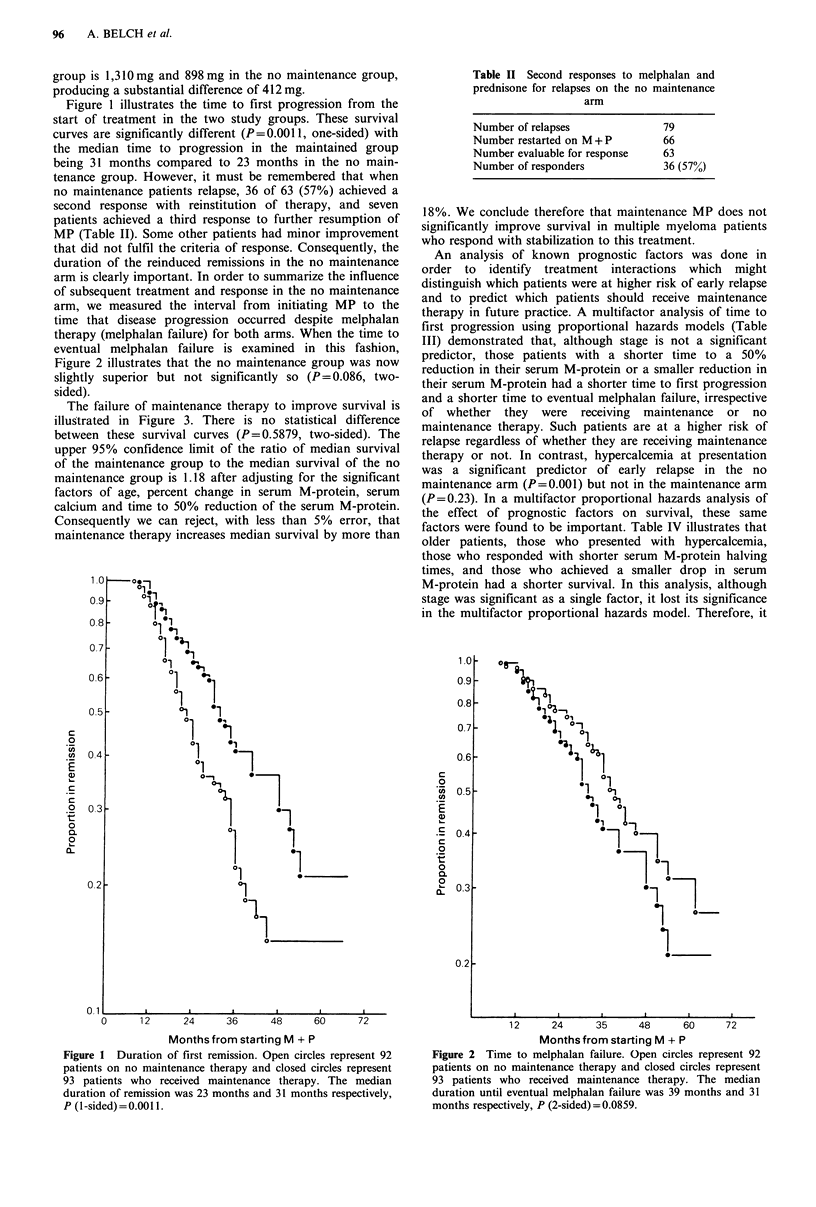
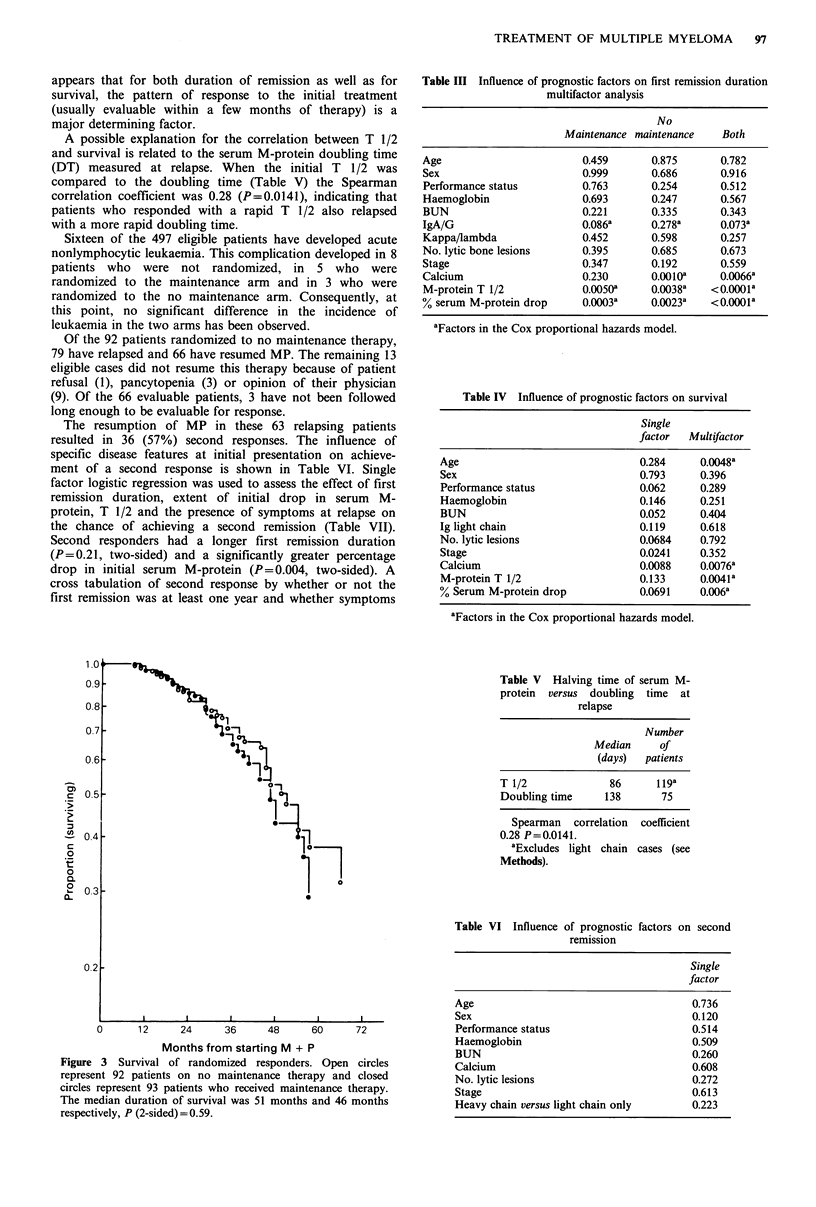
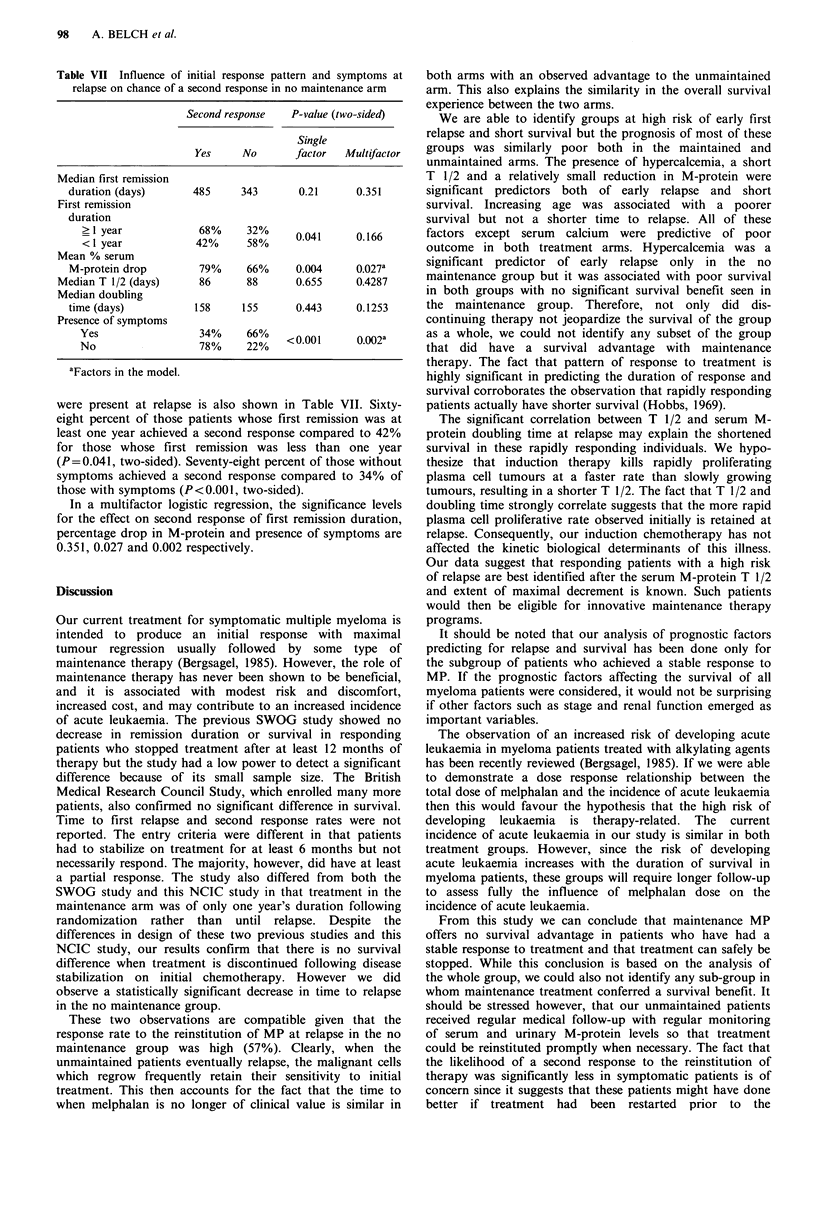
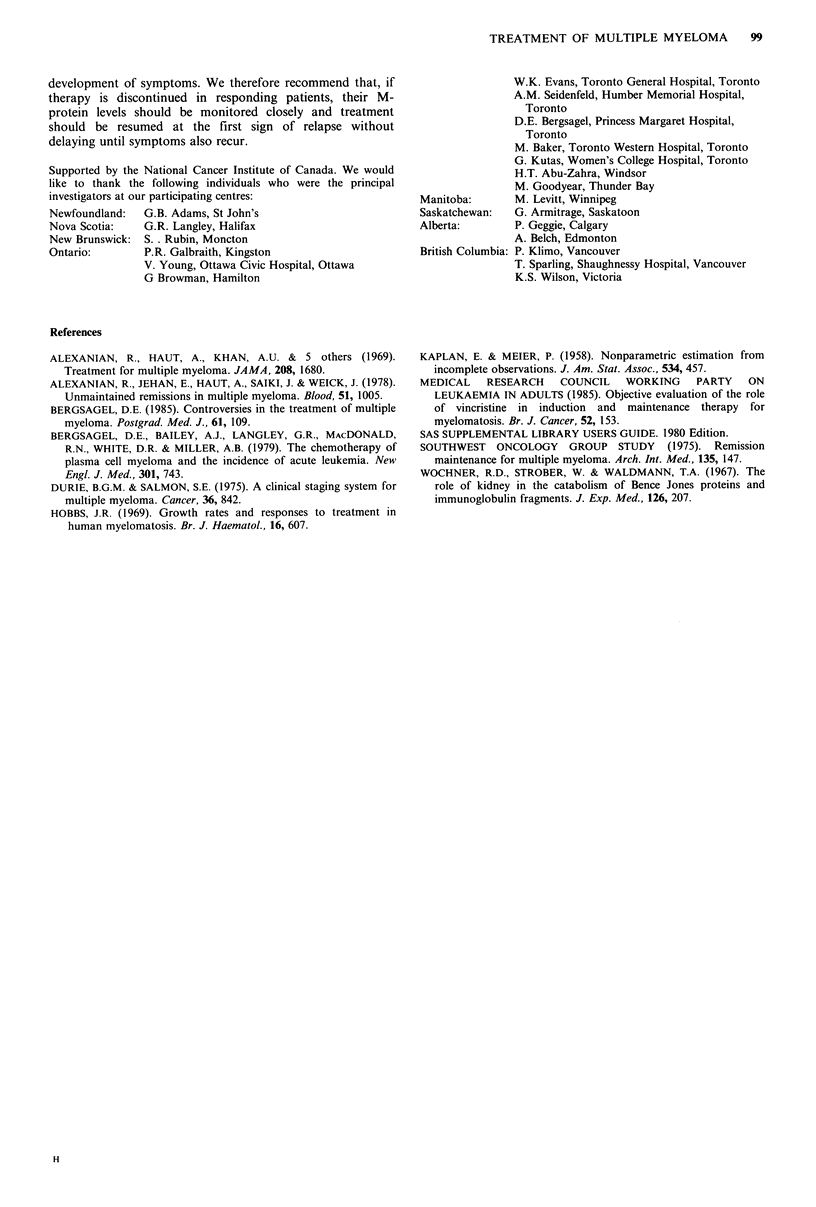
Selected References
These references are in PubMed. This may not be the complete list of references from this article.
- Alexanian R., Gehan E., Haut A., Saiki J., Weick J. Unmaintained remissions in multiple myeloma. Blood. 1978 Jun;51(6):1005–1011. [PubMed] [Google Scholar]
- Alexanian R., Haut A., Khan A. U., Lane M., McKelvey E. M., Migliore P. J., Stuckey W. J., Jr, Wilson H. E. Treatment for multiple myeloma. Combination chemotherapy with different melphalan dose regimens. JAMA. 1969 Jun 2;208(9):1680–1685. doi: 10.1001/jama.208.9.1680. [DOI] [PubMed] [Google Scholar]
- Bergsagel D. E., Bailey A. J., Langley G. R., MacDonald R. N., White D. F., Miller A. B. The chemotherapy on plasma-cell myeloma and the incidence of acute leukemia. N Engl J Med. 1979 Oct 4;301(14):743–748. doi: 10.1056/NEJM197910043011402. [DOI] [PubMed] [Google Scholar]
- Bergsagel D. E. Controversies in the treatment of plasma cell myeloma. Postgrad Med J. 1985 Feb;61(712):109–116. doi: 10.1136/pgmj.61.712.109. [DOI] [PMC free article] [PubMed] [Google Scholar]
- Durie B. G., Salmon S. E. A clinical staging system for multiple myeloma. Correlation of measured myeloma cell mass with presenting clinical features, response to treatment, and survival. Cancer. 1975 Sep;36(3):842–854. doi: 10.1002/1097-0142(197509)36:3<842::aid-cncr2820360303>3.0.co;2-u. [DOI] [PubMed] [Google Scholar]
- Hobbs J. R. Growth rates and responses to treatment in human myelomatosis. Br J Haematol. 1969 Jun;16(6):607–617. doi: 10.1111/j.1365-2141.1969.tb00441.x. [DOI] [PubMed] [Google Scholar]
- Wochner R. D., Strober W., Waldmann T. A. The role of the kidney in the catabolism of Bence Jones proteins and immunoglobulin fragments. J Exp Med. 1967 Aug 1;126(2):207–221. doi: 10.1084/jem.126.2.207. [DOI] [PMC free article] [PubMed] [Google Scholar]


